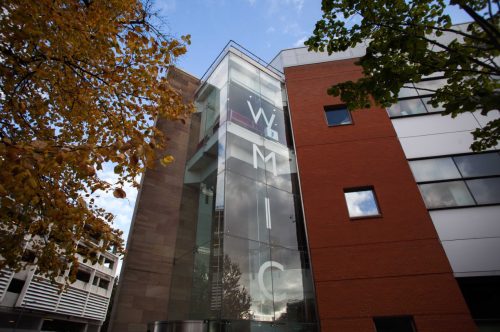Re-launch of vital North West medical facility announced

Medicines Discovery Catapult (MDC) has announced the re-launch of radiochemistry at the Wolfson Molecular Imaging Centre (WMIC) in Manchester.
The facility, which was closed in 2020, includes the multimillion-pound ‘Cyclotron,’ one of only a handful in the UK.
It will supply hard-to-make radio-chemicals to drug discovery biotechs and academic innovators – increasing the UK’s potential to discover new and better therapies for patients, faster.
MDC, the independent national centre for innovation in drug discovery, has a major focus in pre-clinical imaging and will now offer the design and production of radiotracers alongside its cutting edge imaging and industrial drug discovery expertise based at nearby Alderley Park, in Cheshire.
In recent years MDC and the WMIC jointly delivered a pipeline of commercial and grant-funded PET (positron emission tomography) imaging projects for UK drug discovery innovators.
The new partnership with the University of Manchester builds on that success and secures the future of the only major radiochemistry facility in the North West – maintaining the region as a UK leader in PET radiochemistry and imaging.
The combination of MDC’s in vivo imaging and infrastructure, with WMIC’s heritage in radiochemistry, further strengthens the national PET Network, which has been established across the UK by MDC and leading academic centres of excellence.
It also creates an opportunity for theranostics – an area of potentially significant impact – to flourish within the UK.
Theranostics combines therapeutics and diagnostics in one package for image-guided therapy and could be a step change in defining the outcome of treatment at an early stage.
Prof Peter Simpson, chief scientific officer at Medicines Discovery Catapult, said: “By reinvigorating this leading centre for radiochemistry, and combining it with MDC’s extensive drug discovery capabilities, we can transform preclinical science in the North West and across the nation.
“Exploiting MDC’s state-of-the-art imaging suite, underpinned by our internationally-recognised scientists, we intend to showcase, simplify and industrialise PET imaging in drug discovery, so the UK can become a global leader in preclinical and clinical PET imaging within the next five years.”
Peter Clayton, deputy vice-president and deputy dean, Faculty of Biology, Medicine & Health, University of Manchester, said: “The university has had a very positive working relationship with MDC for a number of years, and we are looking forward to seeing the impact of this new development on pre-clinical research.
“The combination of MDC’s in vivo imaging expertise and infrastructure with the University of Manchester’s expertise and heritage in radiochemistry creates a virtual centre of excellence and provides the only centralised radiochemistry facility in the region.”








